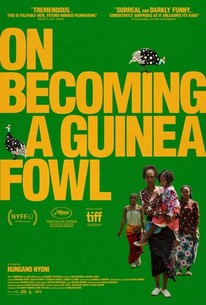Becoming a Guinea Pig: A Surreal Exploration of Family Secrets
In the realm of cinematic storytelling, few films manage to weave surrealism with the raw, unfiltered truths of family dynamics like « Becoming a Guinea Pig. » This dynamic narrative unfolds on an empty road in the middle of the night, where Shula, a young woman, stumbles upon the lifeless body of her uncle. As the film progresses, viewers are drawn into the web of buried secrets that encompass the complexities of a middle-class Zambian family. This unique perspective offers a fascinating exploration of the lies we tell ourselves and the haunting truths that lie beneath the surface. The film opens with an eerie atmosphere that immediately engages the audience. Shula’s encounter with her uncle’s body serves as the catalyst for the unfolding drama. The empty road symbolizes not only the journey through physical space, but also the emotional landscapes of grief, denial, and revelation. The stark contrast of the night and the vibrant colors that follow serve to heighten the surreal experience and encourage viewers to delve deeper into the narrative, as the cousins play a key role in uncovering the intricate tapestry of their family history. Their interactions are layered with both love and anger, highlighting the complexities that often occur in family relationships. As the funeral proceedings begin, the cousins are confronted with the long-buried secrets that have shaped their identities and their collective family narrative. This exploration of character dynamics is essential to understanding the film’s overarching themes.
- Shula’s journey of self-discovery and acceptance.
- Confronting past traumas and their consequences for the future.
Thematic Elements: Lies and Truths
Becoming a Guinea Fowl is essentially a film about the lies we tell ourselves and the truths we often avoid. The title itself suggests a transformation, perhaps reflecting the characters’ struggle to come to terms with reality. The symbolism of the guinea fowl, a bird often associated with family and community in Zambian culture, emphasizes the importance of connection and the weight of family obligations in their family history. The secrets they uncover are not just personal, but also resonate with broader social themes, inviting viewers to reflect on their own narratives. This universal exploration of truth and deception is what makes the film resonate with audiences across cultures. “Guinea Fowl” is a stunning piece of cinematography. The visual storytelling complements the surreal elements of the narrative, creating a vibrant backdrop for the unfolding drama. The use of color, light, and shadow adds to the emotional weight of the film, immersing viewers in Shula’s world. The mix of humor and tragedy adds depth to the narrative, allowing the audience to connect with the characters on multiple levels. The surreal elements emphasize the absurdity of certain situations, while the vivid visuals ground the story in reality. The film “Becoming a Guinea Fowl” has garnered critical acclaim for its innovative storytelling and powerful themes.



 30/34
30/34